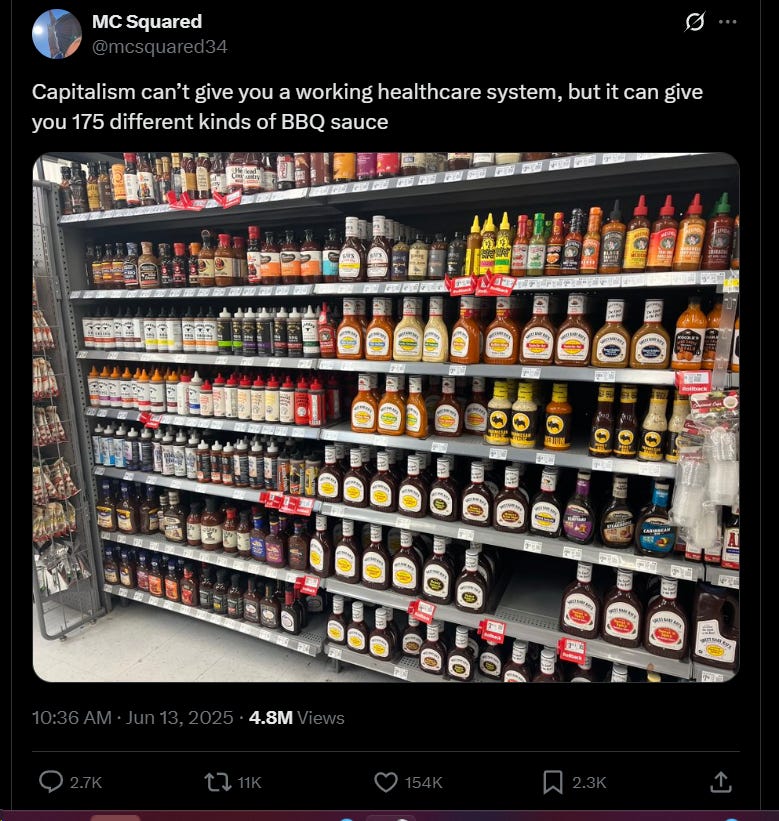Capitalism’s Forbidden Cure
The myth that markets can't deliver healthcare
There's a popular meme circulating social media recently: a photo of supermarket shelves stocked with dozens of BBQ sauces, captioned with the critique, "Capitalism can't give you a working healthcare system, but it can give you 175 different kinds of BBQ sauce."
While rhetorically punchy, this criticism is exactly backwards. The presence of such diverse BBQ sauce options isn't a trivial flaw; it's a strength of capitalism. The meme inadvertently highlights what capitalism excels at: efficiently satisfying highly diverse individual preferences.
Imagine if healthcare operated with similar freedom. Capitalists would enthusiastically offer not just one or two rigid healthcare systems, but an entire ecosystem of healthcare models—tailored to individual needs, budgets, risk tolerances, and personal values.
We might see everything from ultra-premium concierge services offering unlimited access to top specialists, to minimalist catastrophic-only coverage at extremely low cost. Providers might specialize in holistic care, evidence-based medicine, AI-driven diagnostic services, telemedicine-only subscriptions, community co-op models, traditional family doctor networks, or entirely new paradigms of health management yet undiscovered.
The reason healthcare today doesn't mirror the variety of BBQ sauce is straightforward: it's largely illegal.
Healthcare is one of the most heavily regulated sectors, constrained by licensing cartels, extensive credentialism, monopolistic practices enforced by state-backed professional bodies, opaque pricing enforced by third-party payers, and regulatory capture by entrenched corporate interests. Genuine market competition, innovation, and experimentation—the hallmarks of a healthy capitalist system—are systematically blocked.
When critics point out the absurdity of BBQ sauce diversity versus healthcare stagnation, they're actually criticizing the very regulatory interventions they typically support. Capitalism naturally produces variety and innovation. If genuine capitalist dynamics were permitted in healthcare, we'd indeed have not just 175—but countless—kinds of healthcare services, each crafted to meet the diverse, unique preferences of millions of individuals.
The irony is deep and instructive: the meme meant to criticize capitalism inadvertently highlights exactly what healthcare desperately needs—more capitalism, not less.



